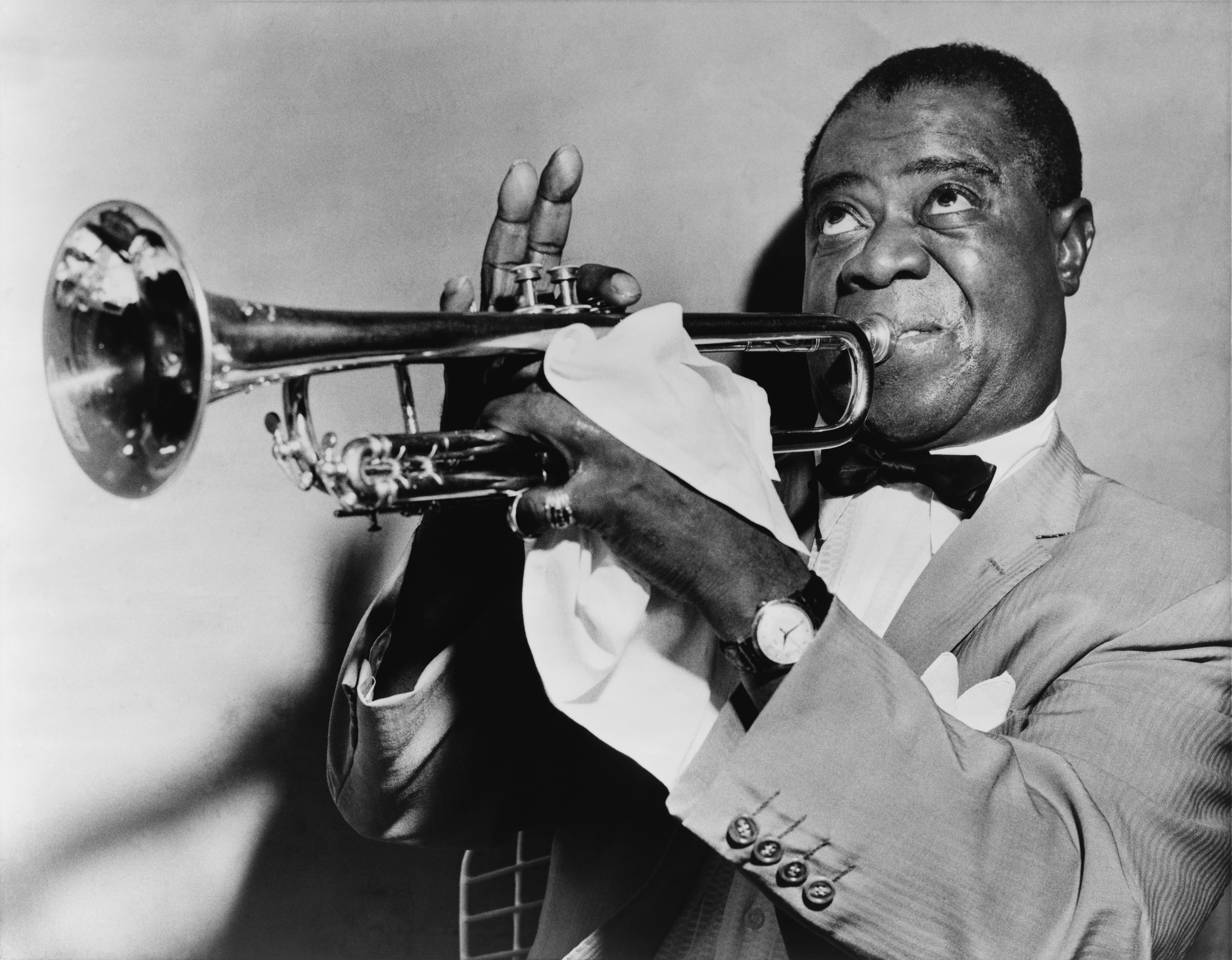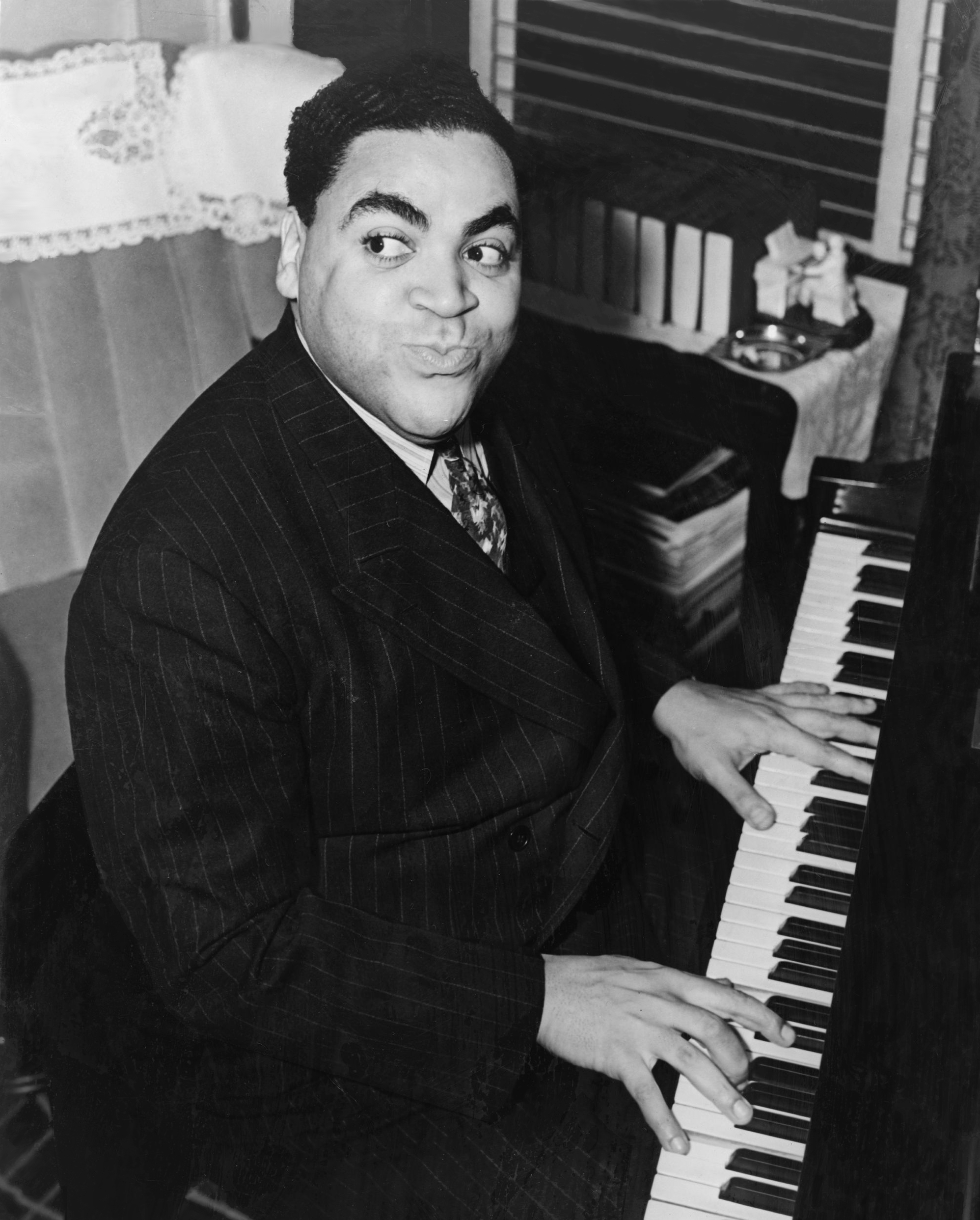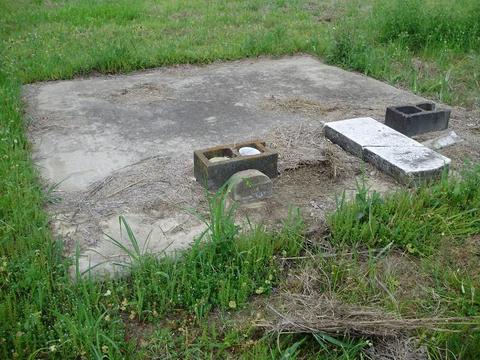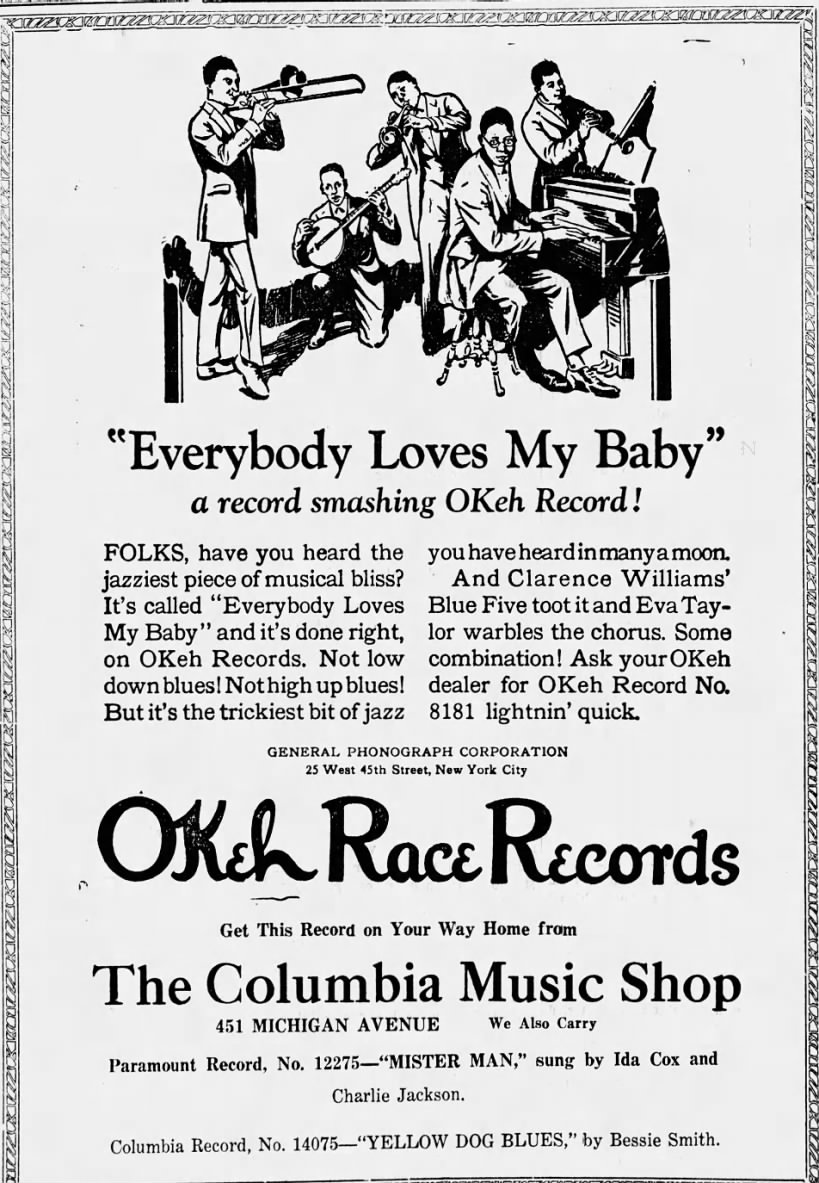|
I've Found A New Baby
"I've Found a New Baby", also known as "I Found a New Baby", is a popular song written by Jack Palmer and Spencer Williams. It was introduced by Clarence Williams' Blue Five in 1926 and has since been recorded by many artists, making it a popular jazz standard.Jeremy WilsonI've Found a New Babyoverview at ''jazzstandards.com'' - retrieved on 20 May 2009 Popular versions in 1926 were by Ted Lewis and by Ethel Waters. Sidney Bechet and his New Orleans Feetwarmers recorded a notable version September 15, 1932, Bing Crosby recorded the song on September 5, 1945, with Eddie Heywood and Bobby Darin included the song in his album ''Winners'' (1960). Spencer Williams and Palmer had collaborated in 1924 on the hit song " Everybody Loves My Baby, but My Baby Don't Love Nobody but Me", and Williams had a hit in 1919 with "Royal Garden Blues". All three songs have become standards, and "I've Found a New Baby" is included in the repertoire of almost every traditional jazz band. Charlie Chr ... [...More Info...] [...Related Items...] OR: [Wikipedia] [Google] [Baidu] |
Popular Song
Popular music is music with wide appeal that is typically distributed to large audiences through the music industry. These forms and styles can be enjoyed and performed by people with little or no musical training.Popular Music. (2015). ''Funk & Wagnalls New World Encyclopedia'' As a kind of popular art, it stands in contrast to art music. Art music was historically disseminated through the performances of written music, although since the beginning of the recording industry, it is also disseminated through sound recording, recordings. Traditional music forms such as early blues songs or hymns were passed along orally, or to smaller, local audiences. The original application of the term is to music of the 1880s Tin Pan Alley period in the United States. Although popular music sometimes is known as "pop music", the two terms are not interchangeable. Popular music is a generic term for a wide variety of genres of music that appeal to the tastes of a large segment of the populati ... [...More Info...] [...Related Items...] OR: [Wikipedia] [Google] [Baidu] |
Royal Garden Blues
"Royal Garden Blues" is a blues song composed by Clarence Williams and Spencer Williams in 1919. Popularized in jazz by the Original Dixieland Jazz Band, at ''jazz.com'' - retrieved on 30 April 2009 it has since been recorded by numerous artists and has become a .Royal Garden Blues at ''jazzstandards.com'' - retrieved on 30 April 2009 The song is considered one of the first |
Songs Written By Spencer Williams
A song is a musical composition performed by the human voice. The voice often carries the melody (a series of distinct and fixed pitches) using patterns of sound and silence. Songs have a structure, such as the common ABA form, and are usually made of sections that are repeated or performed with variation later. A song without instruments is said to be a cappella. Written words created specifically for music, or for which music is specifically created, are called lyrics. If a pre-existing poem is set to composed music in the classical tradition, it is called an art song. Songs that are sung on repeated pitches without distinct contours and patterns that rise and fall are called chants. Songs composed in a simple style that are learned informally by ear are often referred to as folk songs. Songs composed for the mass market, designed to be sung by professional singers who sell their recordings or live shows, are called popular songs. These songs, which have broad appeal, are oft ... [...More Info...] [...Related Items...] OR: [Wikipedia] [Google] [Baidu] |
1920s Jazz Standards
Jazz standards are musical compositions that are widely known, performed and recorded by jazz artists as part of the genre's musical repertoire. This list includes compositions written in the 1920s that are considered standards by at least one major book publication or reference work. Some of the tunes listed were already well-known standards by the 1930s, while others were popularized later. The time of the most influential recordings of a song, where appropriate, is indicated on the list. A period known as the "Jazz Age" started in the United States in the 1920s. Jazz had become popular music in the country, although older generations considered the music immoral and threatening to old cultural values. Dances such as the Charleston and the Black Bottom were very popular during the period, and jazz bands typically consisted of seven to twelve musicians. Important orchestras in New York were led by Fletcher Henderson, Paul Whiteman and Duke Ellington. Many New Orleans jazzme ... [...More Info...] [...Related Items...] OR: [Wikipedia] [Google] [Baidu] |
1926 Songs
Nineteen or 19 may refer to: * 19 (number) * One of the years 19 BC, AD 19, 1919, 2019 Films * ''19'' (film), a 2001 Japanese film * ''Nineteen'' (1987 film), a 1987 science fiction film * '' 19-Nineteen'', a 2009 South Korean film * '' Diciannove'', a 2024 Italian drama film informally referred to as "Nineteen" in some sources Science * Potassium, an alkali metal * 19 Fortuna, an asteroid Music * 19 (band), a Japanese pop music duo Albums * ''19'' (Adele album), 2008 * ''19'', a 2003 album by Alsou * ''19'', a 2006 album by Evan Yo * ''19'', a 2018 album by MHD * ''19'', one half of the double album '' 63/19'' by Kool A.D. * ''Number Nineteen'', a 1971 album by American jazz pianist Mal Waldron * ''XIX'' (EP), a 2019 EP by 1the9 Songs * "19" (song), a 1985 song by British musician Paul Hardcastle * "Stone in Focus", officially "#19", a composition by Aphex Twin * "Nineteen", a song from the 1992 album ''Refugee'' by Bad4Good * "Nineteen", a song from the 20 ... [...More Info...] [...Related Items...] OR: [Wikipedia] [Google] [Baidu] |
List Of 1920s Jazz Standards
Jazz standards are musical compositions that are widely known, performed and recorded by jazz artists as part of the genre's musical repertoire. This list includes compositions written in the 1920s that are considered standards by at least one major book publication or reference work. Some of the tunes listed were already well-known standards by the 1930s, while others were popularized later. The time of the most influential recordings of a song, where appropriate, is indicated on the list. A period known as the "Jazz Age" started in the United States in the 1920s. Jazz had become popular music in the country, although older generations considered the music immoral and threatening to old cultural values. Dances such as the Charleston and the Black Bottom were very popular during the period, and jazz bands typically consisted of seven to twelve musicians. Important orchestras in New York were led by Fletcher Henderson, Paul Whiteman and Duke Ellington. Many New Orleans jazzmen ... [...More Info...] [...Related Items...] OR: [Wikipedia] [Google] [Baidu] |
Sonny Rollins And The Contemporary Leaders
''Sonny Rollins and the Contemporary Leaders'' is a 1959 album by jazz saxophonist Sonny Rollins, recorded for the Contemporary label, featuring performances by Rollins with Hampton Hawes, Barney Kessel, Leroy Vinnegar, and Shelly Manne with Victor Feldman added on one track.Sonny Rollins discography Retrieved October 2, 2009 It was the last studio record Rollins made in the 1950s. Following the recording of "Sonny Rollins and the Contemporary Leaders", Rollins toured Europe in the spring of 1959, then took a hiatus from recording and performing in public that ended in 1962 with his LP '' The Bridge''. Reception The |
Sonny Rollins
Walter Theodore "Sonny" Rollins (born September 7, 1930) is an American retired jazz tenor saxophonist who is widely recognized as one of the most important and influential jazz musicians. In a seven-decade career, Rollins recorded over sixty albums as a leader. A number of his compositions, including " St. Thomas", " Oleo", " Doxy", and " Airegin", have become jazz standards. Rollins has been called "the greatest living improviser". Due to health problems, Rollins has not performed publicly since 2012 and announced his retirement in 2014. Early life Rollins was born in New York City to parents from the Virgin Islands. The youngest of three siblings, he grew up in central Harlem and on Sugar Hill, receiving his first alto saxophone at the age of seven or eight. He attended Edward W. Stitt Junior High School and graduated from Benjamin Franklin High School in East Harlem. Rollins started as a pianist, then switched to alto saxophone after being inspired by Louis Jordan ... [...More Info...] [...Related Items...] OR: [Wikipedia] [Google] [Baidu] |
Benny Goodman
Benjamin David Goodman (May 30, 1909 – June 13, 1986) was an American clarinetist and bandleader, known as the "King of Swing". His orchestra did well commercially. From 1936 until the mid-1940s, Goodman led one of the most popular swing big bands in the United States. His concert at Carnegie Hall in New York City on January 16, 1938, is described by critic Bruce Eder as "the single most important jazz or popular music concert in history: jazz's 'coming out' party to the world of 'respectable' music." Goodman's bands started the careers of many jazz musicians. During an era of racial segregation, he led one of the first integrated jazz groups, his trio and quartet. He continued performing until the end of his life while pursuing an interest in classical music. Early years Goodman was the ninth of twelve children born to poor Jewish emigrants from the Russian Empire. His father, David Goodman, came to the United States in 1892 from Warsaw in partitioned Poland and becam ... [...More Info...] [...Related Items...] OR: [Wikipedia] [Google] [Baidu] |
Guitar Solo
A guitar solo is a melody, melodic passage, instrumental section (music), section, or entire piece of music, pre-written (or improvised) to be played on a classical guitar, classical, electric guitar, electric, or acoustic guitar. In 20th and 21st century traditional music and popular music such as blues, Swing music, swing, jazz, jazz fusion, rock music, rock and heavy metal music, heavy metal, guitar solo (music), solos often contain virtuoso techniques and varying degrees of improvisation. Guitar solos on classical guitar, which are typically written in musical notation, are also used in classical music forms such as chamber music and concertos. Guitar solos range from unaccompanied works for a single guitar to compositions with accompaniment from a few other instruments or a large ensemble. The accompaniment musicians for a guitar solo can range from a small ensemble such as a jazz quartet or a rock musical ensemble, band, to a large ensemble such as an orchestra or big ban ... [...More Info...] [...Related Items...] OR: [Wikipedia] [Google] [Baidu] |
Charlie Christian
Charles Henry Christian (July 29, 1916 – March 2, 1942) was an American swing and jazz guitarist. He was among the first electric guitarists and was a key figure in the development of bebop and cool jazz. He gained national exposure as a member of the Benny Goodman Sextet and Orchestra from August 1939 to June 1941. His single-string technique, combined with amplification, helped bring the guitar out of the rhythm section and into the forefront as a solo instrument. For this, he is often credited with leading to the development of the lead guitar role in musical ensembles and bands. Early life Christian was born in Bonham, Texas. His family moved to Oklahoma City, Oklahoma, when he was a small child. His parents were musicians. He had two brothers: Edward, born in 1906, and Clarence, born in 1911. Edward, Clarence, and Charlie were all taught music by their father, Clarence Henry Christian. Clarence Henry was struck blind by fever, and in order to support the family he ... [...More Info...] [...Related Items...] OR: [Wikipedia] [Google] [Baidu] |
Everybody Loves My Baby, But My Baby Don't Love Nobody But Me
"Everybody Loves My Baby", also known as "Everybody Loves My Baby, but My Baby Don't Love Nobody but Me", is a popular and jazz standard song composed by Spencer Williams in 1924. Lyrics were written by Jack Palmer. One important early recording was by the young Louis Armstrong with Clarence Williams' Blue Five on November 6, 1924, New York, NY. Released as a single: "Everybody Loves My Baby (but My Baby Don't Love Nobody But Me)" (Palmer, Jack; Williams, Spencer) aster S-72-959-B– Okeh 8181. Featuring: Williams, Clarence (Piano, Director); Taylor, Eva (Vocal); Armstrong, Louis (Cornet); Thompson, Aaron (Trombone); Bailey, Buster (Soprano Saxophone); and Christian, Buddy (Banjo). Before this recording, Armstrong won a vaudeville night at the Roseland Ballroom singing and playing this tune. Another popular recording in 1925 was by Aileen Stanley. The song remained popular for decades and continues to be performed regularly in the 21st century. Other notable recording ... [...More Info...] [...Related Items...] OR: [Wikipedia] [Google] [Baidu] |







